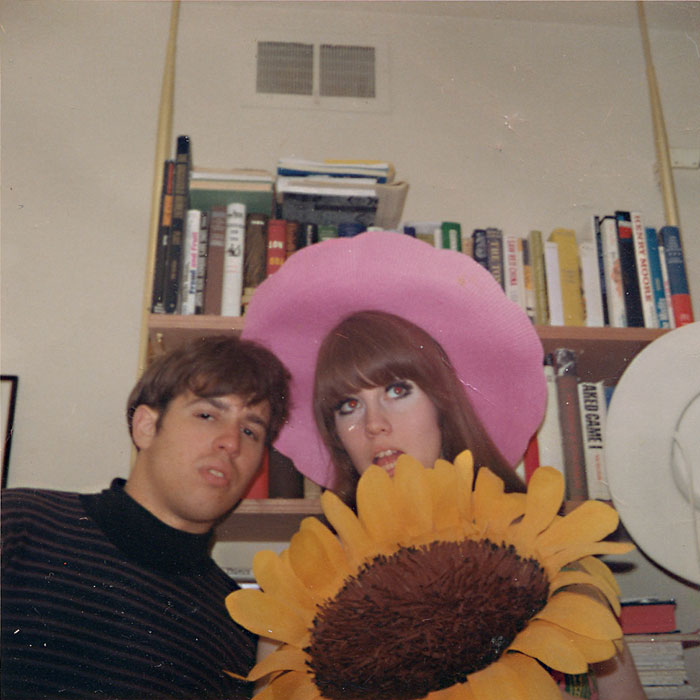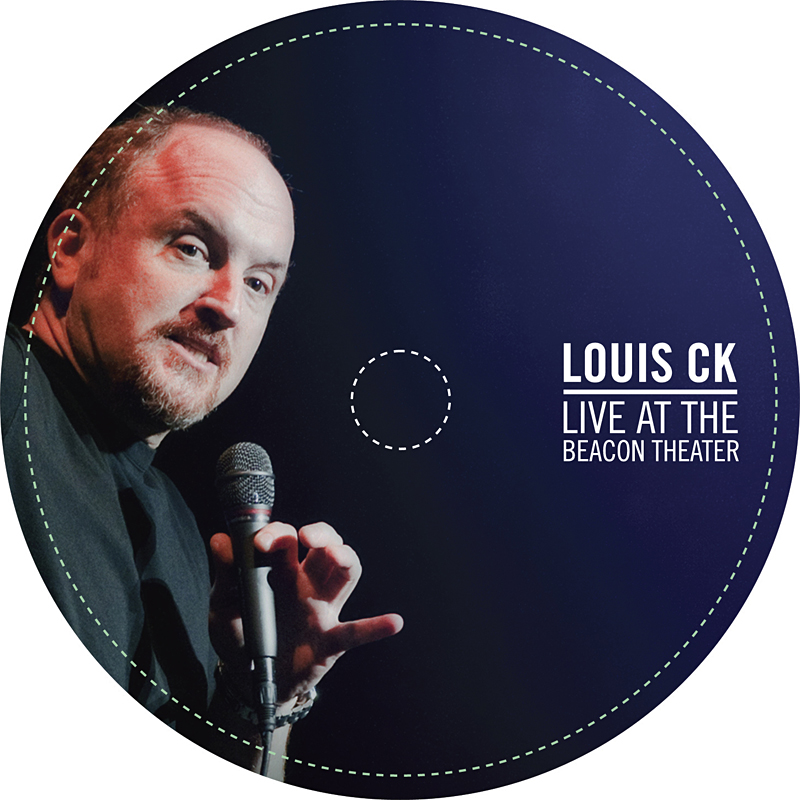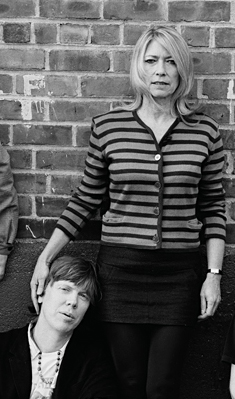Stephen John Kalinich wrote a poem in the late ’60s called “Be Still” that was set to music by his friend Brian Wilson of the Beach Boys. It was intended for a spoken-word album of Kalinich’s that Wilson produced. I explained to Kalinich that “Be Still” is the only song I’ve ever heard that made me want to be a better person.
“I’m sorry,” he replied, holding back tears. “Just to know that something I did had that sort of impact…it’s just…Y’know, Brian [Wilson] always told me, ‘Don’t think about trying to reach the whole world, Stevie, just think about reaching people.'”
From the sound of it, Kalinich, a Los Angeles resident since the mid-’60s, has captivated nearly everyone he’s met. Bill Bentley, former publicist for Neil Young and Kalinich’s friend since 1981, says he’s been to parties in Hollywood where Kalinich’s magnetic personality roused all of those assembled, no matter how famous or jaded they were.
“He’s as inspiring a person as I’ve ever been around,” says Bentley. “In a lot of ways, he raises your game. I think he reminds [those celebrities] of the kind of person they really want to be…why they wanted to pursue that art in the first place.”
On September 30, local label Light in the Attic Records released A World of Peace Must Come, the lone album Kalinich and Wilson recorded together. Sessions were held off-and-on through the late ’60s “whenever the inspiration struck,” says Kalinich. He and Wilson finished the record officially in 1969, at which point Kalinich took home the master tapes and promptly lost track of them.
He then spent the ’70s and ’80s assuring people he had indeed made a record of his poetry with Wilson. But it was rare that anyone believed him, especially, says Bentley, those “Brian Wilson scholars” who keep track of every note the guy ever played. Kalinich finally uncovered the tapes in the late ’80s. (Though he’s since forgotten where he rediscovered them, he’s pretty sure they were just in a box in his closet.) Bentley says finding the lost album was “like cosmic relief,” and he and Kalinich spent the next two decades trying to find a label to release it.
“This is probably the weirdest record Light in the Attic’s ever put out,” says Matt Sullivan, the label’s co-owner, who heard about the record from Marilyn Wilson (Brian’s ex-wife) and Daniel Rutherford. At the time, Sullivan was nosing around about some other random Beach Boys–related projects. But when Marilyn and Rutherford mentioned this unreleased spoken-word record that Brian Wilson had worked on, it sent Sullivan off on another audio archaeology hunt.
Bentley had been working with Kalinich to find a home for A World of Peace Must Come, but typically labels would show interest, get caught up in legal limbo, and abruptly lose interest without much explanation. “But Matt [Sullivan] came along,” says Kalinich. “He’s young, he’s energetic, and he gets me as a person.”
While other labels spent years trying to get permission from Wilson’s management and lawyers to release the album, Bentley says he always felt the legalities were unnecessary, considering that Wilson wanted it to be regarded as Kalinich’s record and not some Beach Boys side project. Light in the Attic, being a smaller, nimbler label in position to take a few risks, moved forward.
“The only deal that was struck,” says Bentley, “was between Stephen and Matt. And Stephen will give Brian [Wilson] his share.” (Kalinich and Wilson are still close friends. According to Sullivan, Kalinich says Wilson is “super excited” that someone is finally releasing the record).
Essentially, says Kalinich, the album is a collection of “poems and chants.” Wilson laced every word Kalinich uttered with an echo, as if he were speaking into a hollow tube. For some tracks, like “Candy Face Lane” and “The Magic Hand,” Wilson simply framed the vocals in deep atmospherics and tape hiss, making Kalinich sound like some baby-faced cherub reciting ancient verse. On other tracks (“The Deer, The Elk, The Raven”), Kalinich is accompanied by natural background noises, such as the crickets outside Wilson’s Bel-Air home and even the barking of Wilson’s dogs. Other acoustic guitar–driven tracks (“Walk Along With Love”) are willowy, like Hebrew melodies.
Throughout, Kalinich recites his poetry in a voice that sounds like it’s about to shatter. “He almost sounds like he’s gonna cry,” says Bentley. “I’ve always said that record is beyond sadness. It’s like he realized all the good there is in the world and all the good people have in them to give, and it’s all just so overwhelming.”
On “If You Knew,” Kalinich says, “If you knew that every moment was now/Would you worry about yesterday or tomorrow?” Later, on “America, I Know You,” he gets very Ginsberg-esque about his passion for our country: “I came down your hills/And traveled through your streets/And drank your water/And saw your sunsets.” There’s something very childlike in it all, like he’s a savant with no ego-built barriers prohibiting him from recognizing the good in everything.
Lyrically, the theme is the same on every track: Live life to its fullest and give love in return. “To me, that’s the highest message you can give,” says Bentley.
Of course, plenty of hippies had similar world-of-peace pipe dreams in the late ’60s. But something about Kalinich’s feels genuine, enhanced by the fact that he hasn’t lost a bit of his childlike enthusiasm all these decades later. Kalinich didn’t write a boisterous rock song pleading for peace, as most angry young Americans did back then. Instead he wrote “Be Still,” which emphasizes the ancient discipline of sitting quietly and doing nothing: “Be still, and know who you are/Be still, and listen to your heart beat…know that you are meant to grow sturdy like the tall oak tree/Know that like the flower takes the sun and wind and rain and eventually blossoms, your life, too, must go through many changes.”
On “Be Still,” Kalinich is backed by Wilson, who plays long, reflective notes on the organ. Kalinich sounds like his emotional well is about to burst—and so does the organ. You almost feel uncomfortable enjoying it, because it’s filled with such unabashed love and positivism.
“I know some people won’t like it. But some, like you, might be touched by it,” says Kalinich. “That’s all I can do. It’s like tossing a pebble into the water—the ripples might touch you, they might not.”
“It’s not for everybody,” adds Bentley. “But that’s the mark of real art for me. It’s something that inspires a strong reaction, whether it be a good reaction or a negative one. I mean, I’ve been around a lot of artists in my time, but Stephen is probably the purest I’ve ever met. The only other artist as pure as him is Captain Beefheart.”
For more information, visit www.lightintheattic.net.








